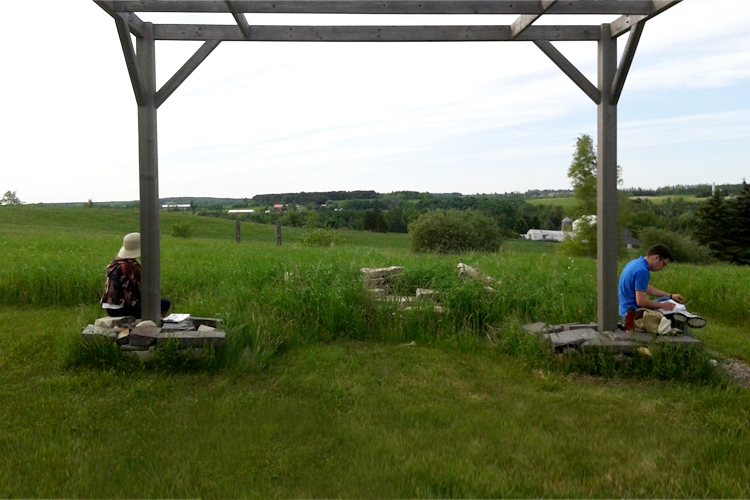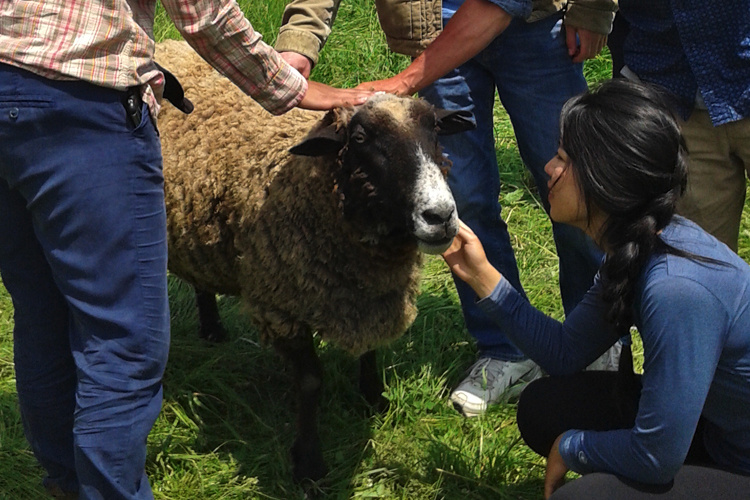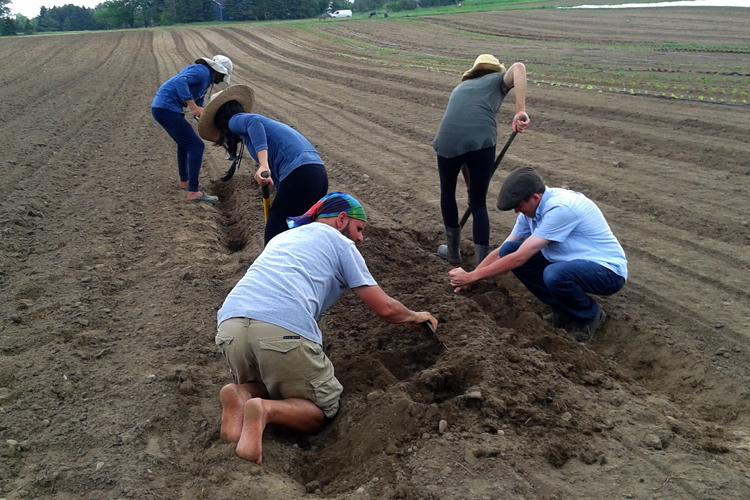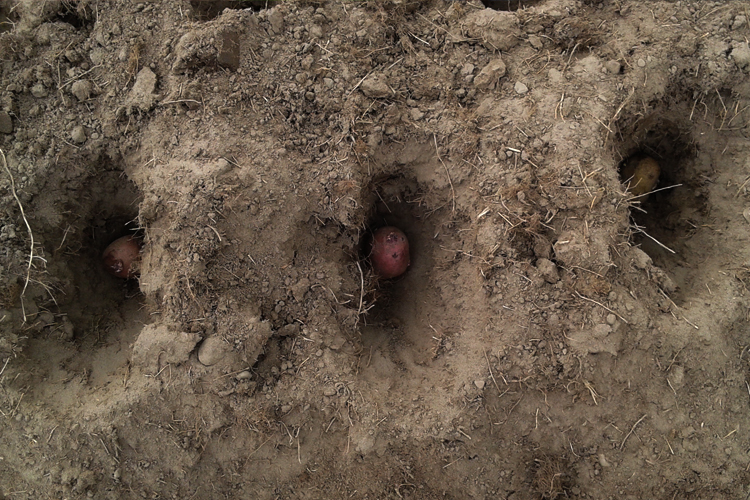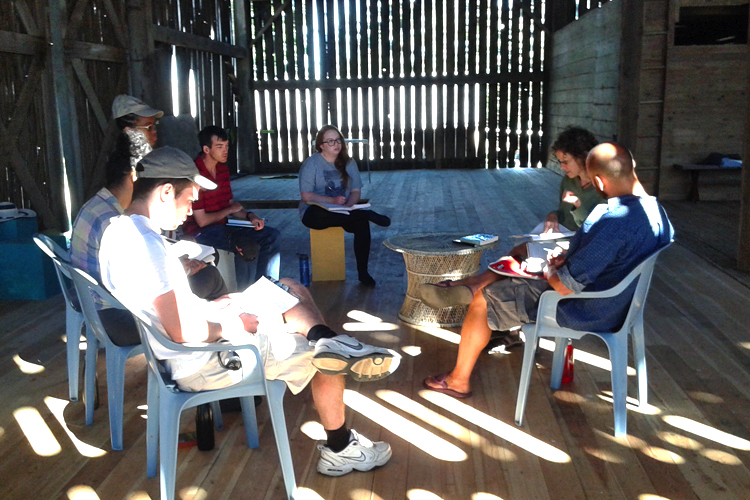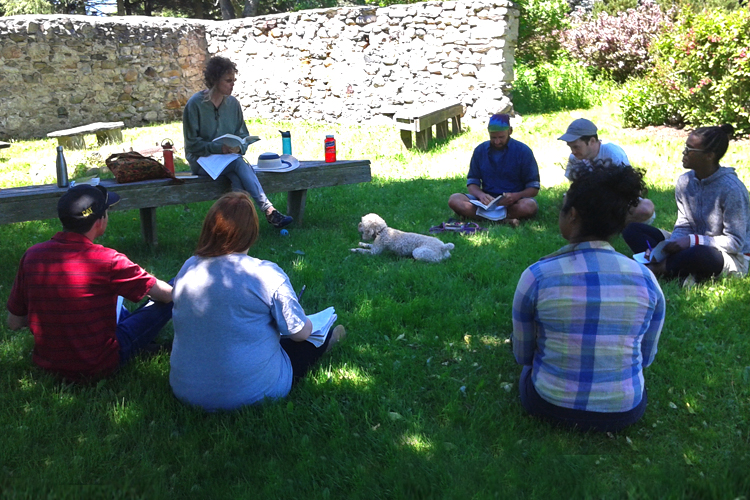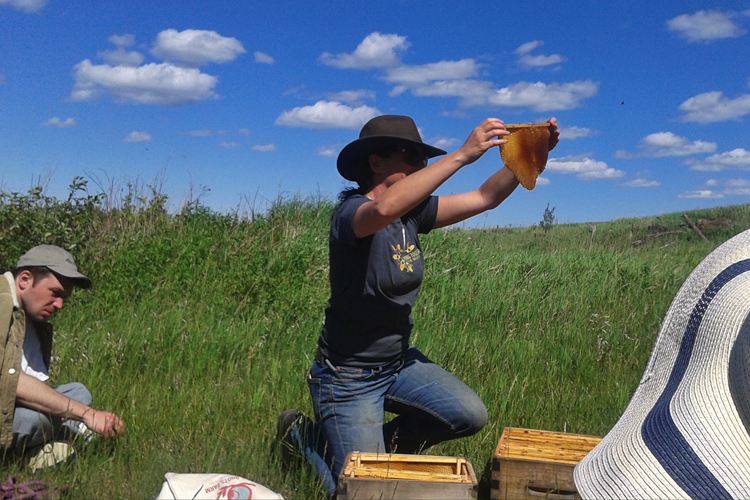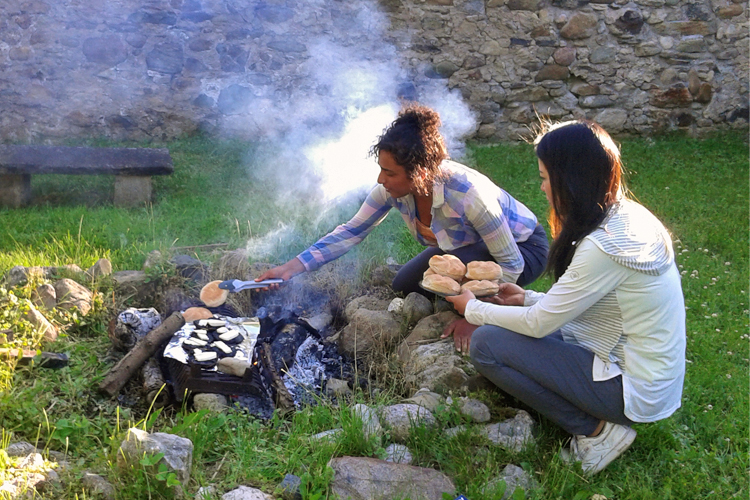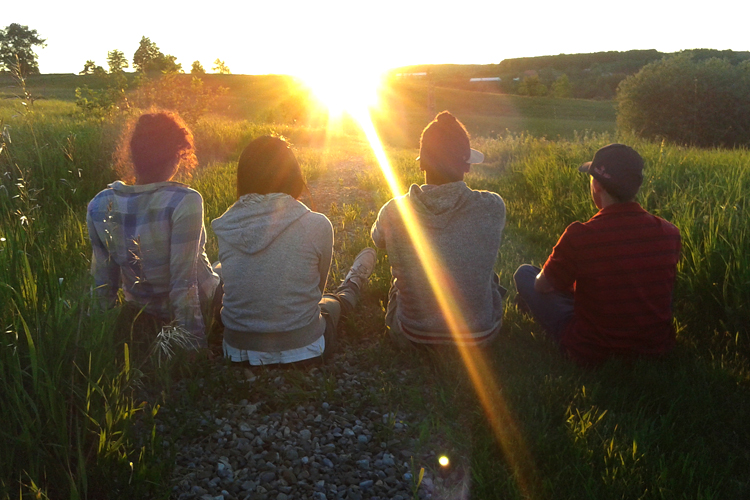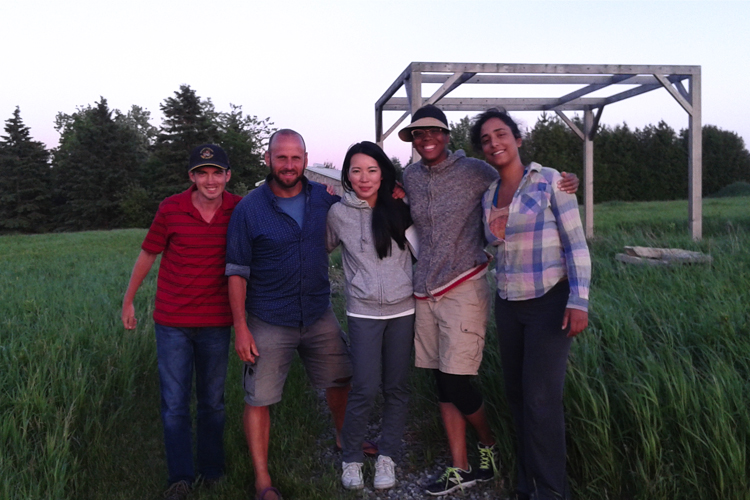Course part of two-year experiment emphasizing experiential learning
This summer, Professor Andrea Most’s American Pastoral course, offered by the Department of English in the Faculty of Arts & Science, taught students what it’s like to work in the field – literally.
Going back to ancient times, pastoral literature has idealized rural life and landscapes for urban audiences, often relocating a troubled urban character to a rural setting for reflection and redemption. In a world facing dire environmental challenges, the course examined the relevance of the pastoral mode today.
Most previously taught the graduate-level course in a classroom setting. But this time around, students enrolled in the course left the lecture halls of U of T’s downtown campus behind to spend a week studying at Bela Farm in Hillsburgh, Ontario, where they didn’t just read literary classics of the pastoral mode, but experienced rural life for themselves.
The change in scenery is part of Most’s two-year experiment to emphasize experiential learning.
“Classical pastoral stories celebrate the transformation that can come from leaving an urban environment for a rural retreat, where characters connect with nature for the purposes of personal rejuvenation and revitalization,” says Most, professor of English and co-founder of Bela Farm. “Given the urgent environmental realities of the present day, this course challenges students to both experience and critique the broad environmental implications of this urban way of ‘using’ nature, and re-examine the relationship between humans and the environment.”
Taking full advantage of the peace and quiet afforded by the farm’s remote location, the class studied pastoral classics such as Shakespeare’s As You Like It and landmark works in ecocriticism like Rachel Carson’s Silent Spring during seminars held outdoors or in the farm’s barn.
For the students, reading texts set in similar settings to the serene landscapes they were experiencing at Bela Farm helped them forge a deeper connection with the material.
“I enjoyed reading excerpts from Little House on the Prairie while dipping my feet in the water off the dock,” says Natalie Johnson-Tyghter, who is completing a master’s in English. “It allowed for the words of the story — which were about girls wading in the water — to be supported by our sensory environment, creating a completely different experience than reading it in a classroom.”
To complement the readings, students took part in experiential modules designed to connect the material to life on the farm, which included a pastoral drawing workshop, a lecture from the farm’s beekeeper, and a lesson in planting potatoes.
They also received an informative overview of sustainable farming from farmers and interns at the neighbouring Everdale Farm, where they got most of the organic produce they ate for the week.
“This experience dispelled any notions I had about a ‘simple country life,’” says Samantha Dawdy, a PhD student from York University who took the course through the Ontario Visiting Graduate Student Program. “Seeing the amount of hard work that goes into running a farm, as well as how unpredictable so many aspects of working the land can be, gave me an entirely new appreciation for the people, and all of the natural cycles, that make food production possible.”
Although the week at Bela Farm provided a stark contrast to city living, Most hopes that the course inspired students to find ways to continue the relationship with nature in their everyday lives.
“We tend to think of nature as being ‘out there,’ separated from ‘real life’ in the city,” she says. “The course helps break down the city-country barrier by making students realize the ways in which they can connect with nature back home in the city, whether through art, farmers’ markets, walking meditation, urban agriculture or other means.”
American Pastoral Course at Bela Farm
